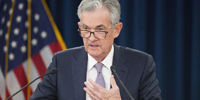Posted on October 07, 2021

By Paul Vanguard, for BullionMax.com
It is far, far better and much safer to have a firm anchor in nonsense than to put out on the troubled seas of thought.
- John Kenneth Galbraith, 1958
The issue with putting your faith in experts lies in the presumption that they actually know what they're doing. I follow my doctor's advice without hesitation. I do what my accountant says. We have experts because the world is just too complicated for one person to know everything.
When it comes to government, we have an agency tasked with keeping our economy running smoothly. It's called the Federal Reserve. They're supposed to be the experts at keeping the U.S. humming along, at full employment with just the right amount of inflation to encourage us to spend rather than save our money.
Because saved money doesn't generate economic activity. Money you save in the bank might get loaned out to a home buyer or a business. Money you spend on a new roof or a Halloween costume, on the other hand, goes out into the world and pays roofers and factory workers, who'll also spend, and so on.
Because economics is something so few people really understand, and even fewer are interested in, economic policies are among the least questioned. Economics is complicated. It's full of stuff like rent-seeking and inelastic demand and autarky (I didn't even make that last one up). After all, we're not economists, right? Not anymore than we're doctors or accountants.
Okay, with that basic assumption in mind, what if your expert is wrong? What if your doctor turns out to be a naturopath with a mail-order credential? Or the accountant you met at the greyhound track lost his license after his third fraud conviction? If your "expert" isn't qualified, or worse, has a track record of making bad choices, should you keep following their advice?
Even worse: what if your "expert" doesn't actually know what they're doing, and are just experimenting, just telling you what to do to see what happens?
In September, Jeremy Rudd , a Senior Adviser at the Federal Reserve (educated at Harvard, doctorate from Princeton - a double-barreled Ivy League thinker!) questioned one of the fundamental tenets of the Fed's policies. His white paper, Why Do We Think That Inflation Expectations Matter for Inflation? (And Should We?) has caused some consternation at the Fed.
Rudd makes a well-researched, well-supported and compelling claim that inflation expectations, which have been one of the Fed's most important metrics determining policies, are utterly useless. If the Fed was a doctor, they'd be diagnosing your condition with a Magic 8-Ball.
Now, that's a problem!
Mike Shedlock dives deep into that without mincing words:
Fed Chair Jerome Powell is a total believer in inflation expectations. So were previous Fed Chairs Janet Yellen and Ben Bernanke.
Proof? Here's Janet Yellen on inflation expectations back in 2017, when she was Fed Chair:
In standard economic models, inflation expectations are an important determinant of actual inflation because, in deciding how much to adjust wages for individual jobs and prices of goods and services at a particular time, firms take into account the rate of overall inflation they expect to prevail in the future.
And here's current Fed Chair Powell on the same subject in an August 27, 2021 speech :
Policymakers and analysts generally believe that, as long as longer-term inflation expectations remain anchored, policy can and should look through temporary swings in inflation. Our monetary policy framework emphasizes that anchoring longer-term expectations at 2 percent is important for both maximum employment and price stability. We carefully monitor a wide range of indicators of longer-term inflation expectations.
So the Fed is spending a lot of time and energy monitoring a "wide range of indicators" to measure something that's totally meaningless. That's forgivable, maybe nothing more than a harmless quirk, if they were otherwise doing a good job.
If.
Unfortunately, they aren't.
We're currently experiencing the third Fed-sponsored nationwide economic bubble in the last 20 years. That's mostly because the Fed firmly believes in the need for inflation in the first place. Their target is 2% (plus or minus, oh, 3x), even if it means dealing with the occasional supermassive bubble and subsequent market crash.
Note: It's only the Fed's belief in "necessary inflation" and their efforts to create it that's causing prices to go up. And not just gas and food prices. Stock valuations, junk bonds, even cryptocurrencies and NFTs of cartoon gorillas have skyrocketed in price.
The Fed tolerates these wealth-destroying market bubbles and wealth-eroding inflation based on a persistent, fundamental flaw in their thinking. And everyone in the U.S. suffers for it. Every single one of us pays higher prices at the gas pump and at the grocery store. Every single Robinhood day-trader or worker with a 401(k) is forced to play the Fed's game.
The only way to opt out of the inflationary rat-race is to swap dollars for physical precious metals. Gold and silver don't care if they're stamped $1 or $1,000 -- their value is inherent, non-inflatable and not subject to the whims of a deluded government bureaucrat.
Paul Vanguard is a lifelong precious metals enthusiast and a proud member of the BullionMax team.